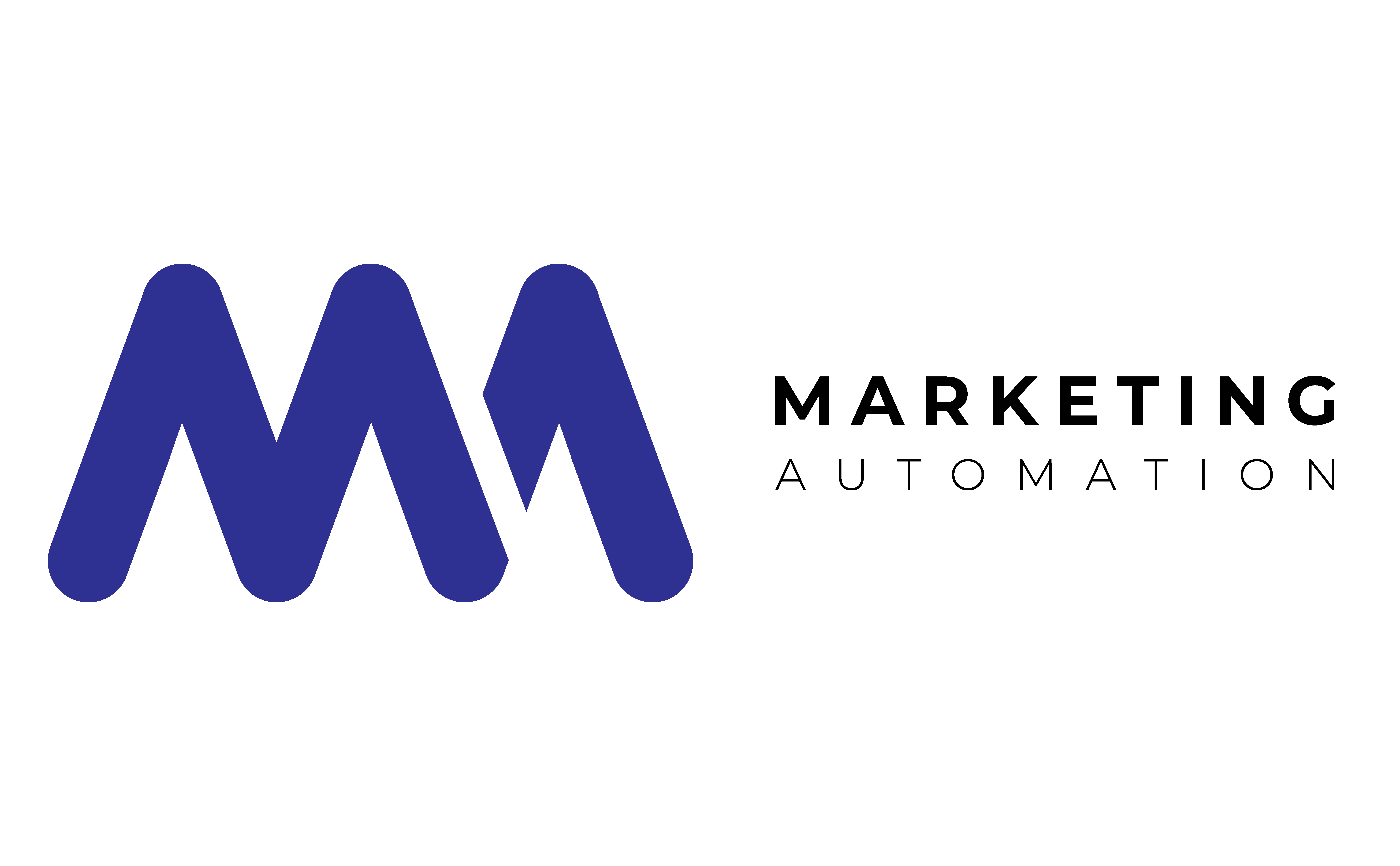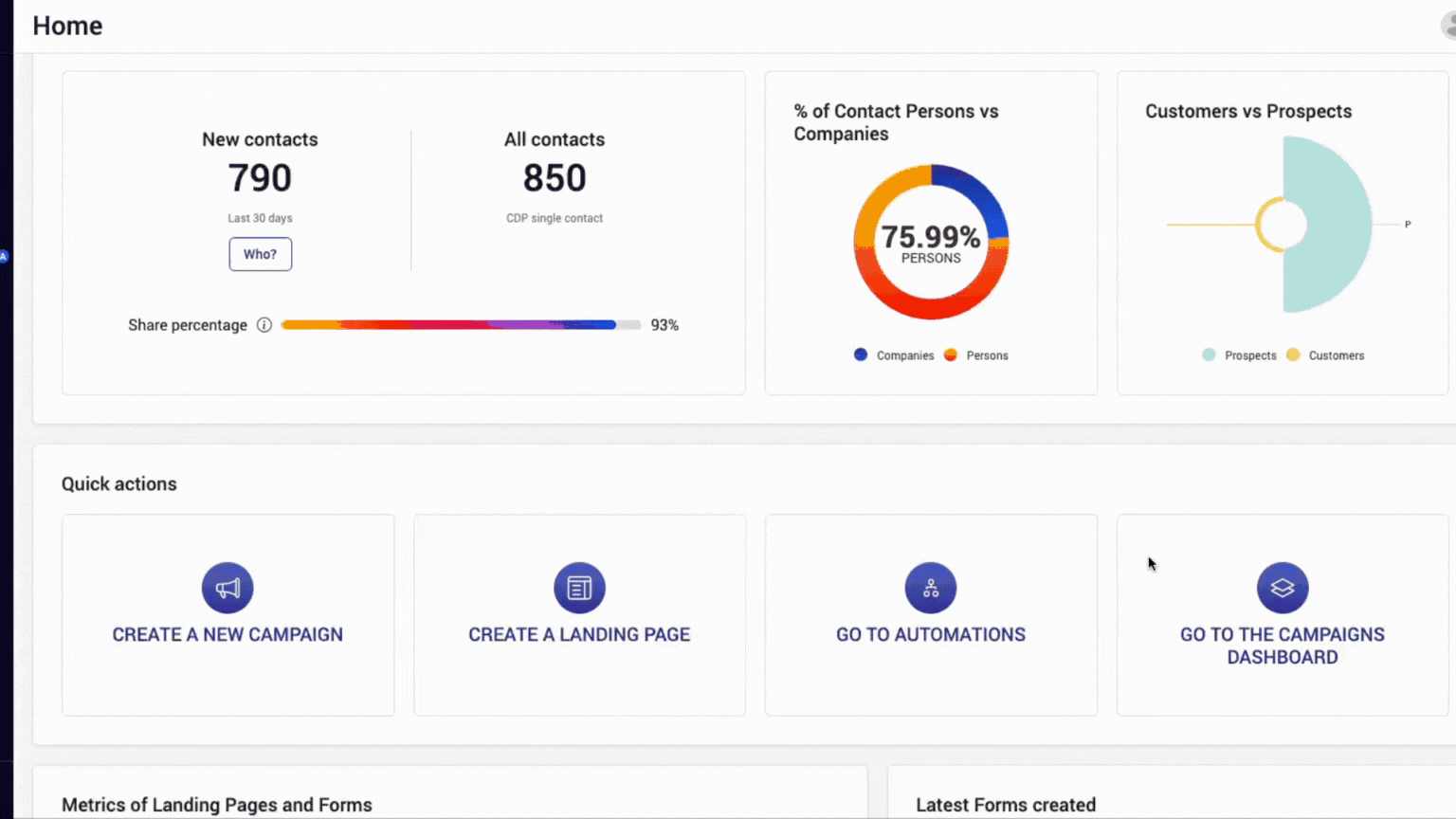In this article, we will give you an introductory overview of the world of Marketing Automation.
In particular, you will discover the benefits of implementing processes such as automating repetitive business tasks, such as managing a new lead or customer retention techniques.
Introduction to Marketing Automation
In the digital age, efficiency and personalization have become buzzwords in marketing. This is where Marketing Automation (MA), a revolution that is reshaping the modern marketing landscape, comes in.
It’s not just about automating emails, it’s about creating a complete ecosystem that nurtures, engages and converts your contacts into loyal customers, virtually effortlessly. As the best say: it is the art of doing more and better, with less time.
What is Marketing Automation?
Marketing Automation is more than just software; it is an overall strategy that uses technology to automate, measure and optimize marketing campaigns.
This technology allows companies to send personalized messages to customers or potential customers on different channels-email, social media, websites-based on their behavior or collected data.
In essence, create a personalized dialogue with your audience, ensuring that the right message is sent to the right person, at the right time.
Clear, but how does it work?
At the heart of Marketing Automation is what we might call “intelligent” software that tracksuser interaction with your brand: from pages visited on your website to emails opened, every action is recorded and analyzed.
This data feeds algorithms that segment users into groups with similar interests, enabling targeted communications that increase engagement and drive action.
It is a continuous cycle of learning and optimization, making each successive campaign more effective than the previous one.
Why is it now essential?
These automated processes radically transform the way brands interact with their audiences.
First, they improve efficiency by reducing manual operations and allowing the team to focus on more strategic tasks. They also increase the effectiveness of campaigns through personalization, leading to higher conversion rates and increased customer loyalty.
Finally, it provides valuable insights into customer behavior, allowing you to continually refine your marketing strategy.
Features of the best platforms (at a glance)
The best platforms offer not only a wide range of tools (such as landing page editor and email campaigns), but also integrations with other systems such as CRM, social media, and analytics, providing a 360-degree view of the customer.
Ease of use, combined with scalability and advanced customization, makes a Marketing Automation platform a powerful tool for companies of all sizes.
Practical examples of automations
Using Marketing Automation can transform the interaction between your brand and your audience. Here are a series of practical examples that illustrate its power and versatility:
- Email di benvenuto personalizzate: invio automatico di email di benvenuto ai nuovi iscritti, introducendo il tuo brand e i tuoi valori in modo personale e accogliente
- Abandoned cart reminders: Sending automatic messages to users who have added products to their cart without completing the purchase, incentivizing them to return to the site to finalize the order.
- Behavior-based Nurturing Pathways: designing email sequences that react to user behavior, such as opening a previous email or visiting a specific page on the site.
- Dynamic audience segmentation: automatic updating of audience segments based on their actions in real time, enabling targeted and relevant marketing campaigns.
- Lead Scoring: Automatically scores leads based on their interactions with your brand, identifying those most likely to convert and enabling the sales team to prioritize the hottest leads.
- Social Lead acquisition: finally, these platforms are able to directly capture contact data collected within lead generation campaigns from the various social networks and automate certain messages in line with the requests made within the social media.
These, of course, are just a few examples that aim to show how Marketing Automation can not only save us valuable time but also create a highly personalized and engaging user experience: that is, one that can drive action and build loyalty.
The tool best suited to your needs
The perfect recipe does not exist, but the market is full of solutions and opportunities.
In short, we can argue that key to selecting the right tool lies in identifying the specific needs of your business and assessing how each platform can meet them.
Compatibility with existing tools, usability, support offered and, of course, budget should certainly be considered. No less important, evaluate the user experience each platform can offer your customers.
Conclusion
It can be said that it is now accepted that the introduction of Marketing Automation in the enterprise opens the door to a virtuous cycle of continuous improvement in operational efficiency.
It is an investment in the future (and for the present) of your business, promising not only to increase sales but also to build deeper and more meaningful relationships with customers.
In general, software selection activities are affected by (at least) three classic cognitive biases:
a. focus on the current need (the most urgent problem to be solved in the company), without looking at the evolution of processes; b. believe that software can solve problems (but it is only a tool that needs strategic thinking); c. Be constrained by the price/cost/expenditure to be made: without looking at the medium- and long-term benefits in terms of cost savings.
With the right strategy, Marketing Automation can truly be the catalyst that takes your business to the next level.










